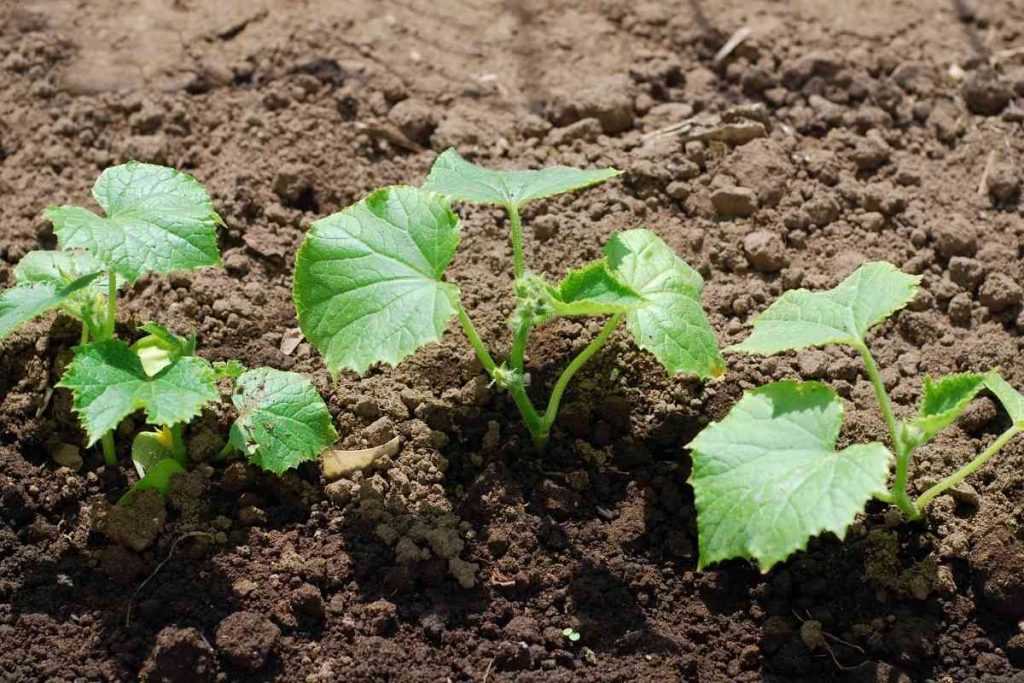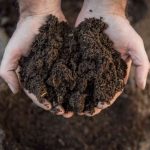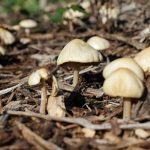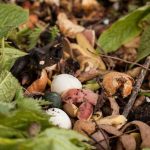Have you considered mushroom compost as a good way to enrich your garden, particularly your orchard? Mushroom compost is an excellent soil builder that keeps the soil moist and is extremely helpful in breaking down dense clay. But do cucumbers like mushroom compost?
Cucumbers will benefit a lot from mushroom compost due to their high calcium content, which cucumber plants need to thrive.
This article will answer all of your questions about this underutilized type of compost and its relevance in terms of vegetables, specifically cucumber.
Table of Contents
Introduction To Mushroom Compost
Composted wheat or rye crop residues, peat moss, used animal bedding, chicken manure, cottonseed meal, grape crushing from vineyards, soya beans, potash, gypsum, urea, ammonium salts, and lime are all ingredients in mushroom compost.
The elements for the compost are weighed and then combined. For around 30 days, big piles of mushroom compost rest and do what compost does best: heat up.
Urea, cotton-seed meal, and chicken manure supply the majority of the nutrients, while the straw gives structure and some food for microorganisms.
The bacteria grow, raising the temperature inside the pile to above 160 degrees, destroying any weed seeds or pathogens present in the straw or animal waste. The result is mushroom compost, which can be used to cultivate a commercial crop.
Before the bed is depleted, a crop can be harvested for another 3 to 4 weeks. The compost is removed after each planting cycle since the mushrooms have “used it up.”
Do Cucumbers Like Mushroom Compost?

Yes, cucumbers like mushroom compost! Mushroom compost has a high calcium content, making it ideal for producing fruits and vegetables that require a lot of calcium, in this instance, cucumber.
Mushroom compost will aid in the growth of robust, lush plants and, as a result, will yield a plentiful cucumber harvest.
They have the following effects on your cucumber:
- Provides a high concentration of essential plant nutrients to cucumbers
- Slowly and steadily distributes nutrients to the soil
- It is a low-cost method of assisting your cucumber in becoming lush and healthy
- Mushroom compost that is completely virus-free will assist you in harvesting healthy, infection-resistant cucumbers
- By blocking out light, it inhibits the growth of weeds
Is Mushroom Manure Good For Cucumbers?
Based on the findings of this research, it has been concluded that mushroom manure is very effective and beneficial for cucumber growth, productivity, and recycling the spent mushroom compost as an organic material source.
Conclusion
As long as the fruit trees are small, an organic fertilizer coupled with compost or Mushroom Compost is preferable.
A slow-release of organic fertilizer scratched into the soil’s surface surrounding the tree, thoroughly watered in, and then covered with compost feeds the soil, which in turn feeds the tree.
Related Posts:
- Plants That Don’t Like Mushroom Compost
- Best Mulch For Trees And Shrubs
- Do Hydrangeas Like Coffee Grounds?




